String in GroovyA string is a sequence of characters. Generally, a string is a data type and implemented as an array of bytes which stores sequence of characters. In Groovy, String class is available in java.lang.String objects as well as in groovy.lang.GString which is called interpolated strings in some programming language. Note: In groovy, all the strings can be concatenated by using the + operatorSingle-quoted stringIn groovy, Single-quoted strings is a sequence of characters which is enclosed under single quotes. Syntax:Example 1:Output: 
Double-quoted stringIn groovy, Double-quoted string is a sequence of characters which is enclosed under double quotes. Syntax:Example 2:Output: 
In Groovy, we can also use ${Variable _name} and $Variable_name instead of using the '+' operator. Using $Variable_name is known as interpolation. It can be used only when the string is defined inside the double quotes. Example 3:Output: 
Triple-single-quoted stringIn groovy, Triple-single-quoted string is a sequence of characters which is enclosed under triple single quotes. Syntax:Example 4:Output: 
In Groovy, Triple-single-quoted strings are mostly used for multiple lines in a single variable. Example 5:Output: 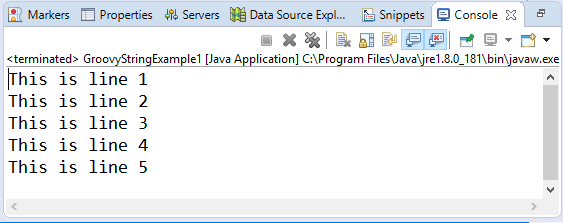
Triple-double-quoted stringIn groovy, Triple-double-quoted string is a sequence of characters which is enclosed under triple double quotes. Syntax:Example 6:Output: 
In Groovy, Triple-double-quoted strings are also used for multiple lines in a single variable. Example 7:Output: 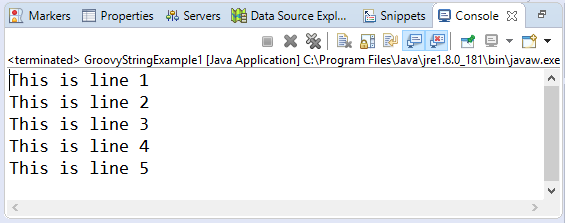
In Triple-double-quoted strings, we can also use ${Variable _name} and $Variable_name instead of using the '+' operator. Using $Variable_name is known as interpolation. Example 8:Output: 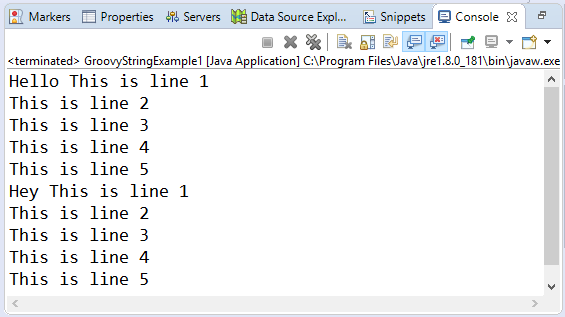
Slashy stringIn groovy, slashy string is a sequence of characters which is enclosed in / forward slash. Slashy strings are useful for defining regular expressions and patterns where there is no need to escape backslashes. Syntax:Example 9:Output: 
In Groovy, slashy strings are also used for multiple lines in a single variable. Example 10:Output: 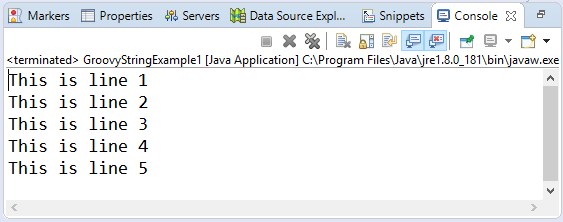
In slashy strings we can also use ${Variable _name} and $Variable_name instead of using the '+' operator. Using $Variable_name is known as interpolation. Example 11:Output: 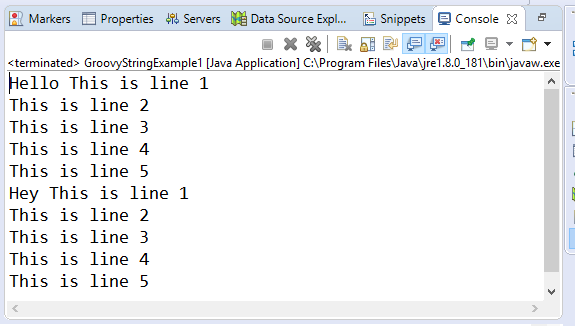
Dollar slashy stringIn groovy, dollar slashy string is a sequence of characters which is enclosed in the $/ dollar and a forward slash. Dollar slashy strings are useful for defining regular expressions and patterns where there is no need to escape backslashes. Syntax:Example 12:Output: 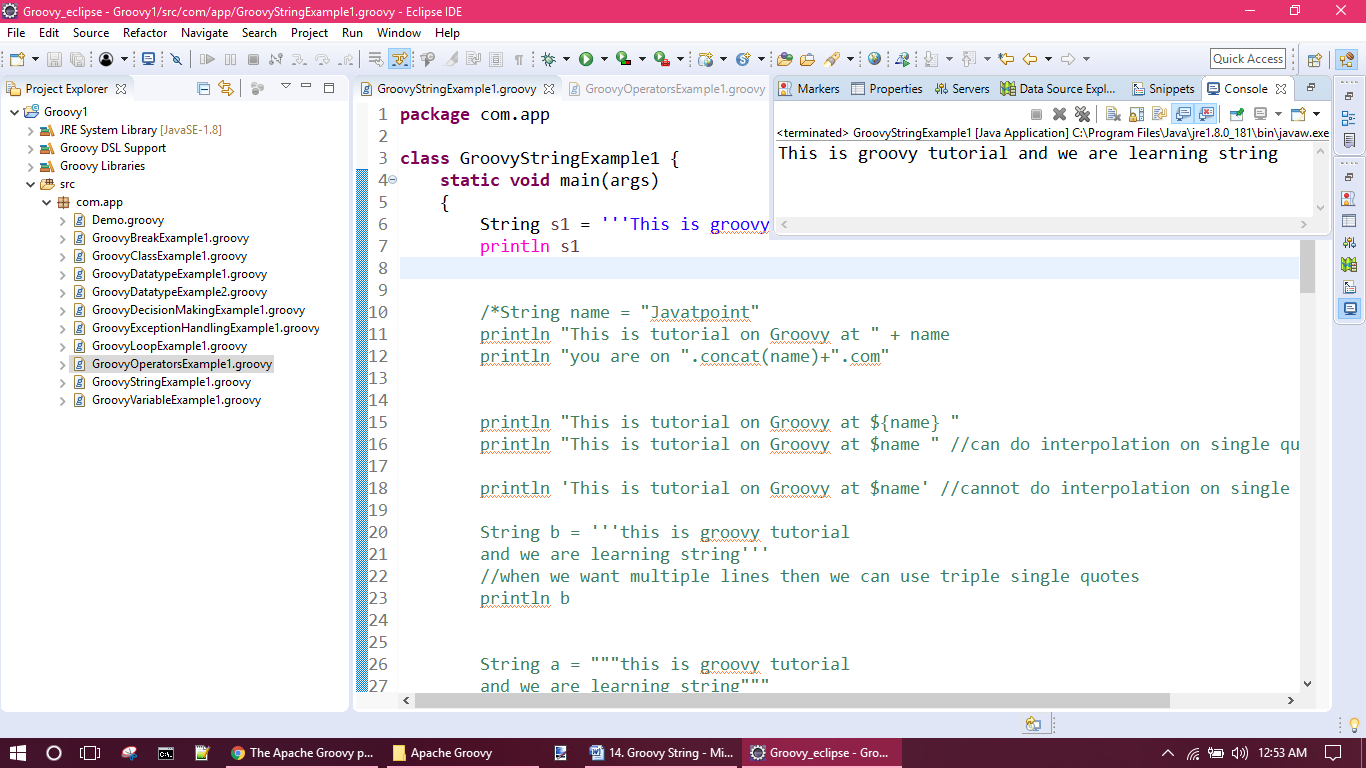
In Groovy, dollar slashy strings are also used for multiple lines in a single variable. Example 13:Output: 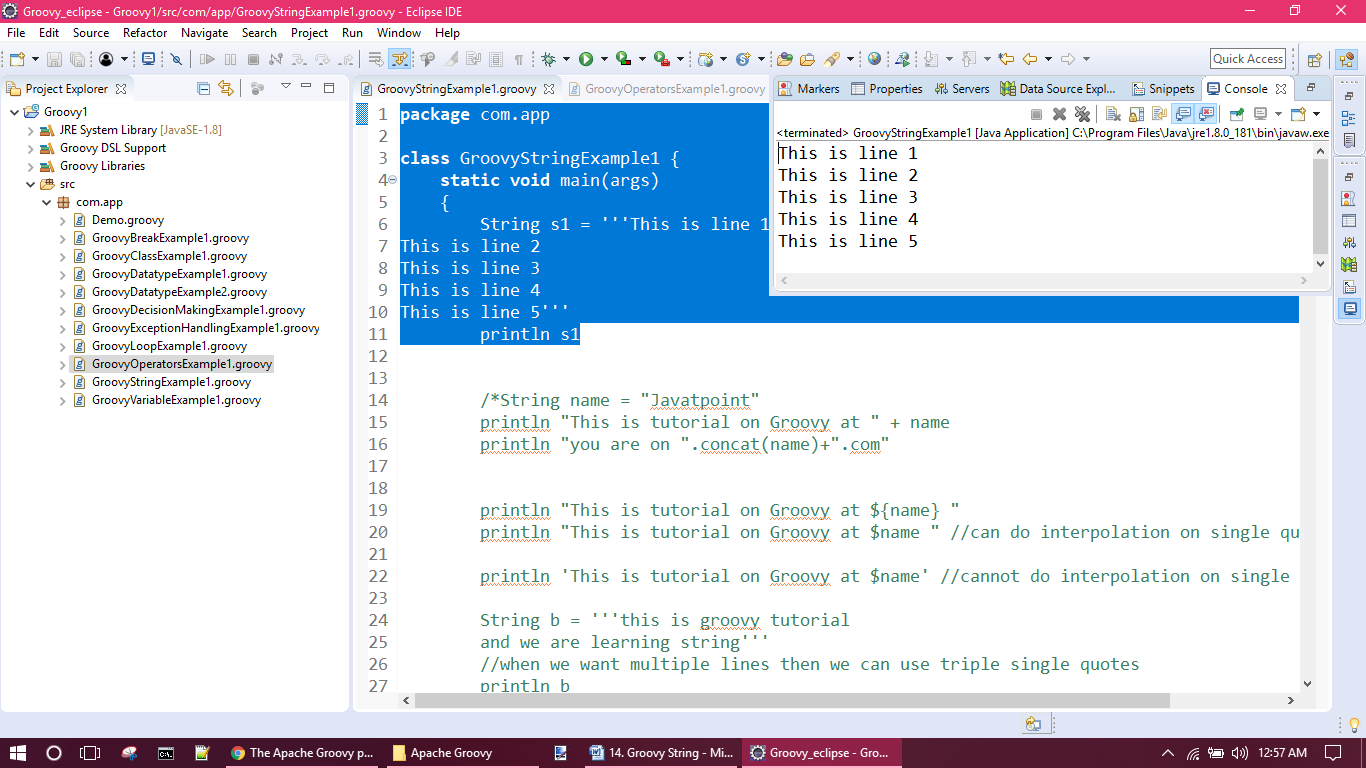
In dollar slashy strings, we can also use ${Variable _name} and $Variable_name instead of using the '+' operator. Using $Variable_name is known as interpolation. Example 11:Output: 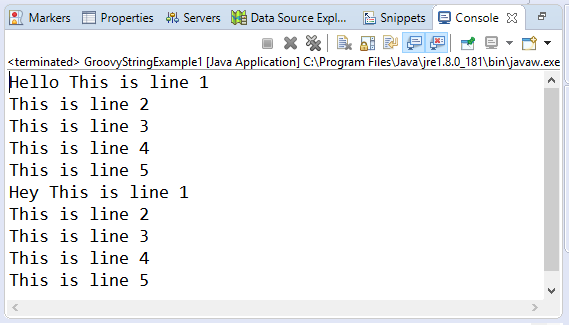
Next Topic#
|
 For Videos Join Our Youtube Channel: Join Now
For Videos Join Our Youtube Channel: Join Now
Feedback
- Send your Feedback to [email protected]
Help Others, Please Share










